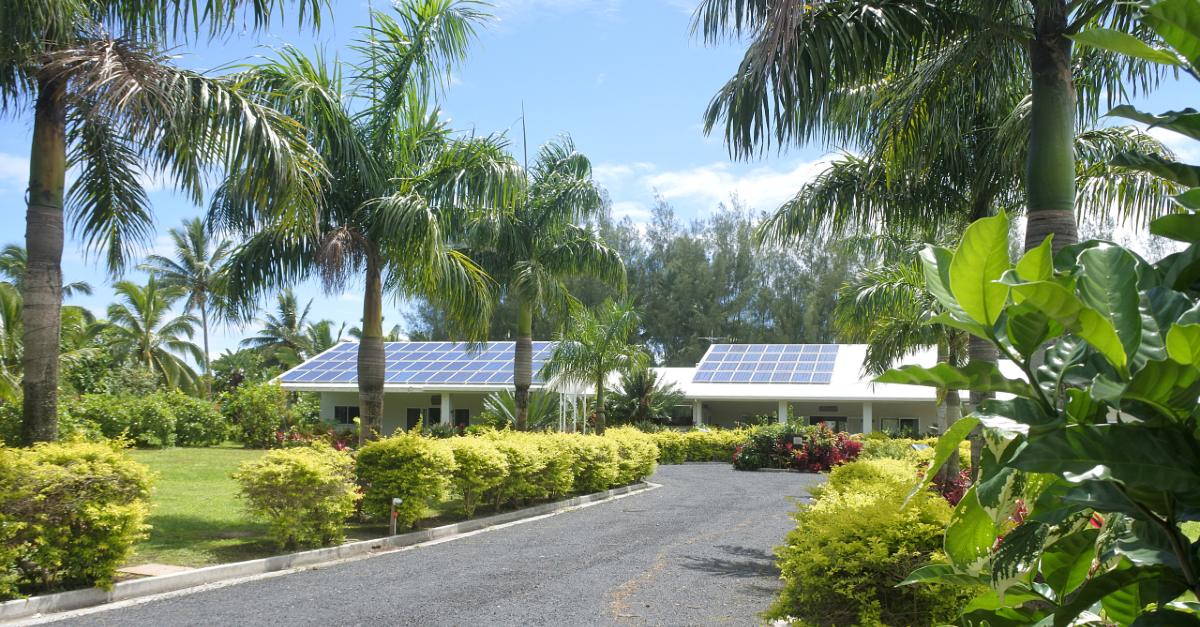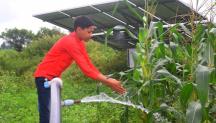

IRENA and Pacific Community Announce Joint Efforts to Boost Recovery
Newsletter

Abu Dhabi, UAE, 26 November 2020 – The International Renewable Energy Agency (IRENA) and the Pacific Community (SPC) will work together to support Pacific island countries transition their energy systems to renewable energy sources as part of a drive support the post-pandemic recovery.
With around 64 per cent of Pacific island residents living without access to reliable energy, and much of the region reliant on expensive and volatile fossil fuel imports, IRENA and SPC will renew their joint focus on reducing energy costs and improving energy security by increasing access to renewables. The partnership will also seek to deliver the broad socioeconomic benefits of the energy transformation for Pacific island communities.
Strengthening policy frameworks, attracting energy transformation investments and supporting project development aimed at driving this shift are of particular focus. IRENA has prioritised energy diversification efforts on Small Island Developing States (SIDS) as part of its UN Climate Action Summit commitment and its SIDS Lighthouses intiative has been recognised by the UN as an important catalyst for SIDS development.
"Pacific Islands are battling the adverse impacts of two major threats to stability and prosperity; the COVID-19 Pandemic and a warming planet,” said IRENA Director-General Francesco La Camera. "We can take meaningful action to address both of these threats if our efforts are coordinated, collaborative, and far-sighted. Central to efforts must be the prioritisation of a decarbonised and decentralised energy system. By working together we can make a sustainable future a reality for the Pacific Islands."
Pacific economies have been significantly impacted by the pandemic, resulting job loss in the tourism and aviation sectors – primary contributors to regional gross domestic product.
“Through this partnership we are demonstrating our common commitment to supporting low cost, reliable and sustainable energy systems throughout the region,” said SPC’s Director-General Dr Stuart Minchin. “Renewable energy and energy efficiency initiatives will stimulate economic growth, create jobs, and contribute to a brighter future for all Pacific people.”
The first pathway will focus on creating effective national and regional energy policies, plans, legislation, and regulations. IRENA and SPC are already working closely with Pacific Island countries to develop renewable energy guidelines, enhance Nationally Determined Contributions (NDCs), and provide implementation support. SPC in collaboration with PRIF and other partners are currently developing the Framework for Energy Security and Resilience in the Pacific (FESRIP) 2021-2030, of which the Pacific SIDS has set a vision of 100 per cent renewable electricity.
SPC and IRENA will also work together to support the development and implementation of renewable energy and energy efficiency projects that have been severely impacted by the COVID-19 pandemic, such as tourism, agriculture-food production, and fisheries. This second transformative pathway will support game-changing renewable energy and energy efficiency projects that create jobs, substitute imported fuels, and add value. Examples include e-mobility and solar PV projects.
The third area of cooperation between the two organisations will focus on attracting investments to the Pacific SIDS. IRENA’s calculations estimate that the Pacific will need to invest approximately USD 5.9 billion in driving this transition through installing an additional 1.8 GW to meet NDC targets. This will be supported through sustainable financing between project developed and investors to drive these priorities throughout this agreement.
SPC will host a dedicated IRENA-Pacific focal point to facilitate implementation of the collaboration.




